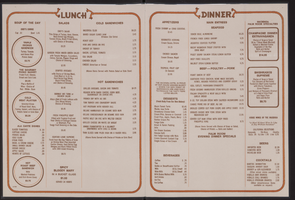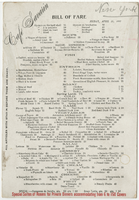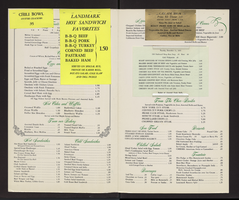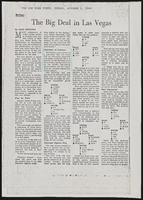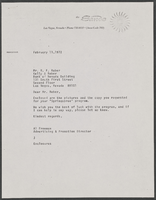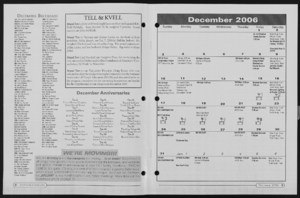Search the Special Collections and Archives Portal
Search Results
Mary Jane Griffith Reiter Papers
Identifier
Abstract
The Mary Jane Griffith Reiter Papers date from 1919 to 1964. The papers document Nevada history and her family’s business and civic work; they contains her grandmother's will, a ledger detailing the costs and expenses for rental properties, and reports and minutes from the Colorado River Commission. It also includes a 1964 bibliography of materials on Nevada.
Archival Collection

Meeting minutes for Consolidated Student Senate, University of Nevada, Las Vegas, June 12, 1979
Date
Archival Collection
Description
Text
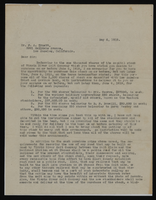
Correspondence, Thomas Toland to F.A. Truett
Date
Archival Collection
Description
Text

Don Perry interview, March 05, 1978: transcript
Date
Archival Collection
Description
On March 5th, 1978, Karen Croteau interviewed Don Perry (b. 1928 in Clarksburg, West Virginia) about Paiute Indians and life on a reservation. Perry begins by mentioning his own Indian heritage with a Cherokee mother and his wife’s Paiute heritage. Perry focuses on his conversations with his wife’s grandmother, who lived on the Paiute reservation since birth, from who he learned about the reservations history. He particularly delves into the traditions of Indian burials, governing on the reservation, and the difference between an Indian reservation and an Indian colony. Additionally, he talks about recreation on the reservations, education of Paiute Indians, and how reservations have changed. Throughout the interview, Perry gives personal anecdotes about his life in connection to the Paiute people and his experiences with their traditions and belief systems. Perry ends by discussing governing politics of the Paiute reservation and the start of Las Vegas as a gambling town.
Text

